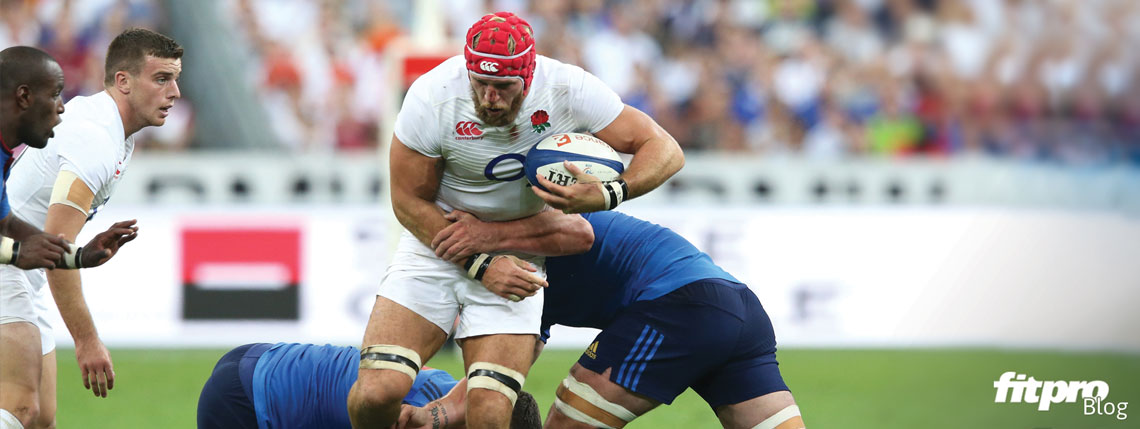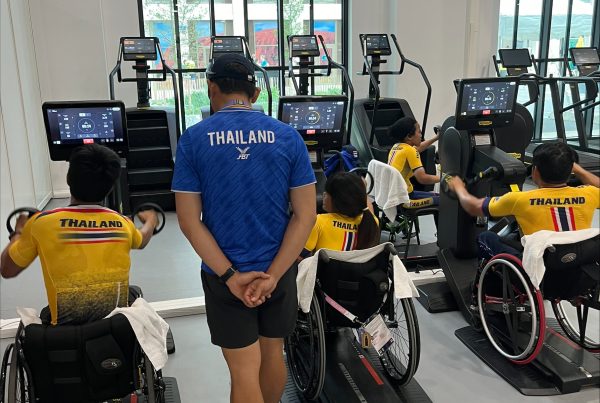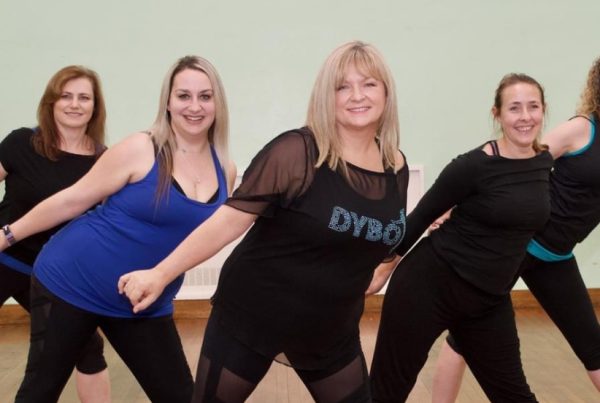International rugby sensation James Haskell talks setting up his fitness business, his favourite exercises right now, and why we shouldn’t eat grass.
“We live in a world where people are desperate for professionals to be qualified – I’ve started working with The Training Room”
Olivia Hubbard: Tell me about setting up your fitness business initially.
James Haskell: I’ve been a professional rugby player for 14 years in terms of my playing career, and I’ve been in health and fitness the entire time really, learning to train and change my body. However, I wanted to do something else. People always say talk about what you know, so I began posting things online about what I was doing, what I was eating, and people began taking an interest. It was very easy to set up – I used a free blogging tool, for example. Rugby has a lot of demand for size, power, fitness and strength, and these are all disciplines for which I was training with some amazing coaches. I’ve been lucky enough to play around the world – I decided to build a business out of it and, five years later, James Haskell Fitness.
OH: Did you face any criticism when setting up the business?
JH: A lot of people think that you should just be focusing on rugby and that’s it. That’s had to change in the last few years, because people have begun to realise that you’ve got to do more outside of the sport. Injury and change can happen straight away, but you always get narrow-minded people.
OH: Who gave you good advice?
JH: My dad has always been in business. He’s very much a ‘doer’; he’s made things happen and has managed them well. He shared his business knowledge with me and I learned the rest by making mistakes and watching what other people were doing.
OH: What qualifications did you undertake?
JH: I’ve started working with The Training Room who are going to help me get my qualifications. I’ve done loads of workshops, teaching people in groups, running events, all that kind of stuff, and I’ve done part of Phil Learney’s course. It’s very difficult to attend courses when you’re still playing. The lucky thing for me is that I’m able to work with so many top experts in all different fields.
OH: What is your weekly training plan?
JH: At the England Camp we train five, maybe six days a week. My training is a little bit different. I do all the team sessions every day, which might be 1.5-2 hours. I’m working a lot on mobility, speed, power, that kind of stuff.
OH: Give me three favourite movements/exercises that you enjoy.
JH: At the moment, it varies. I like to do a lot of banded stretching; I follow Kelly Starrett’s ‘Supple Leopard’ principles. I love chin-ups, which are one of my favourite exercises to do, and I love squatting, that’s part of my weekly routine the whole time.
OH: From what you’ve learnt now, do you have any advice for other trainers setting up their own business?
JH: I would say, first of all, don’t be hesitant, but take some time to plan out what you’re doing. I would try to think as best you can how you can make money from what you’re doing. I would work out how you’re going to manage the business and also keep things very simple – do one or two things really well, as opposed to trying to do five or six. Take time to think over what you’re doing. Be clear in your ideas. The idea of spending money to make money is a redundant one. You’ve got to find what works for you and be honest and genuine about it.
OH: What do you think makes a good leader?
JH: There is the perception that you have to look like an Olympian to teach Olympic lifting. That’s not the case. Knowledge and experience are important, but I think it is even more crucial how you communicate, and understand that everyone is an individual and has different motivating factors. It’s important to set an example in everything you do. Make sure you bring your ‘A’ game the entire time, whether you’re training one client or 50 clients. Everything I do is about fuelling me; nutrition is a cornerstone for anyone wanting to get into shape. You will find the training easier if you stick to the diet. I see it with my girlfriend more so than anyone else, how rigid she is with her diet and the intensity with which she applies herself. I go two days and fall off the wagon. She laughs at me and then goes back and eats her broccoli, mash and chicken. I learn discipline when it’s required. Nutrition doesn’t have to be rocket science. It just takes a little bit of patience, understanding and monitoring.
OH: What’s your view on the foodie bloggers?
JH: People need to find balance in life. I saw a video the other day from a vegan blogger; she thinks that people who eat meat should have their lives threatened. She’s got 250,000 followers. She believes that to be the right thing. There is certainly a factor of us putting way too many antibiotics, E numbers and unknown stuff into our bodies. We’re not meant to eat grass; we need to find balanced diets. We want things to be responsibly farmed and sourced, and we want people to get the best produce they can.
OH: Do you use ViPR™ in any of your training at all?
JH: Yes, I do – at ‘Reach’ in Clapham. I’ve done some ViPR workouts there. They are hard work as part of a circuit. If my girlfriend and I were going to do a circuit, for example on holiday, we would definitely do it.
OH: What are your future plans?
JH: Keep playing until 2019, maybe longer, and go into TV and radio work off the field. Run my fitness business, plus DJ-ing, and doing all the weird and wonderful things that I do off the pitch. I just want to try to be as successful as I can be.
OH: You have said that being selected for ‘The Lions’ tour turns a good player into a great player. How does the tour achieve this?
JH: It’s the pulling of the best players in the world – England, Ireland, Scotland and Wales. The players have to come together in a short period of time and put any differences they may have to one side to unite against, arguably, the best rugby nation in the world. You go out there, you perform, and if you play well, you get a result and get a chance to pull on the line. It sets you apart from other players.
OH: What’s your ‘go-to’ food choice after a game?
JH: I love a pizza after a game and I’m a big fan of Zizzi’s restaurant. Then I’ll head home and pass out on the sofa.
OH: I tried out a VersaClimber class last night, what do you think of this piece of kit?
JH: I’ve got one! I do it all the time and love it. It’s my favourite bit of kit in the gym. I haven’t done a class; I’ll have to try that.
James Haskell is also a sporting ambassador for Meridian Foods, the UK’s leading producer of nut butters. Meridian’s nut butters are natural, contain no palm oil and provide an excellent source of protein and energy. Current sales of nut butter in the UK are at an all-time high, with consumers seeking healthier options to traditional honeys and jams, and exercise enthusiasts keen to find more natural sports nutrition products to consume before and after workouts.







